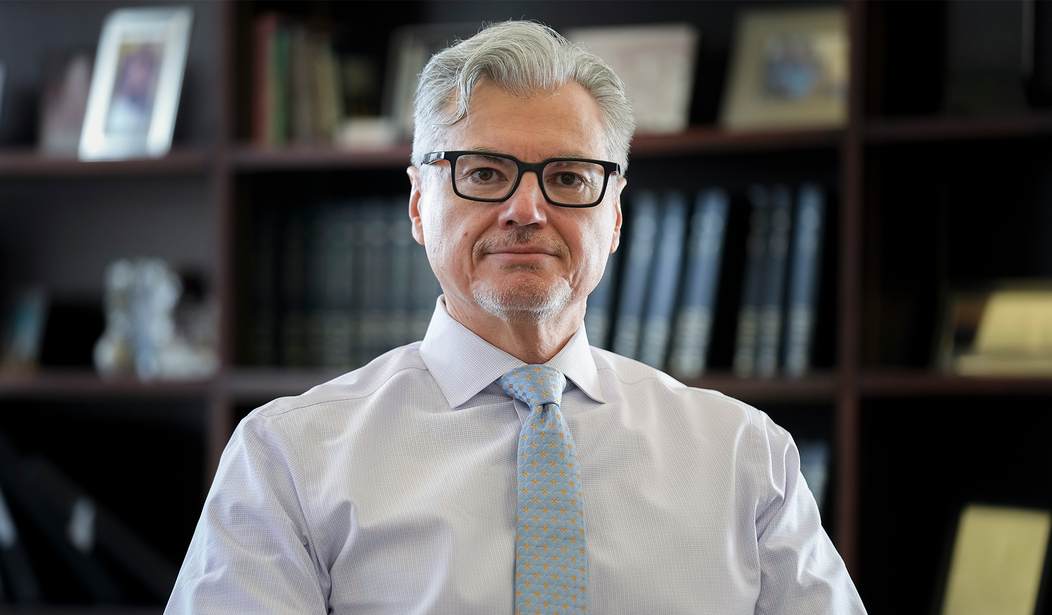The more time we have to look through Judge Juan Merchan's byzantine jury instructions in Donald Trump's "hush money" trial in Manhattan, the worse they look. The vague nature of the instructions has even led to disputes among legal analysts who have struggled to make sense of the case from the beginning. At Townhall, our colleague Matt Vespa has a good rundown of one of the most glaring problems with the instructions. The judge gave the jurors the unheard-of option of picking any one of three crimes that were "concealed" by the entry of "false business records" and said that all twelve of them didn't necessarily have to agree on which of the three crimes was committed. In other words, he appears to be opening the door to a conviction without a unanimous finding by the jury. Matt warns that we "should be prepared for a conviction."
The jury is deliberating, and we should be prepared for a conviction. That’s not to say there isn’t reasonable doubt all over the hush money trial involving Donald Trump, but this whole trial was a circus from the start so it’s unsurprising that its finish was more of a clown show. As Katie wrote this morning, none of this is normal. The judge’s instructions to the jury is aberrant, with some folks commenting on social media that these guidelines for the jury wouldn’t be legal in Zimbabwe. It will only take four jurors to convict Trump [emphasis mine]:
According to legal experts, Merchan's standards for a conviction are abnormal and do not require jurors to reach a unanimous decision on the charges. Further, jurors don't have to determine what crime was committed.
"Judge Merchan has ruled that the jury does not have to agree on what that crime is. The jury could split into three groups of four on which of the three crimes were being concealed and Merchan will still treat it as a unanimous verdict," George Washington University Law Professor Jonathan Turley, who has been inside the courtroom, writes. "The jury has been given little substantive information on these crimes, and Merchan has denied a legal expert who could have shown that there was no federal election violation. This case should have been dismissed for lack of evidence or a cognizable crime."
This is just wrong. Not being an attorney myself, you don't need to take my word for it. You can rely on the feedback from eminent Law Professor Jonathan Turley, who is quoted in the excerpt above. That didn't stop the Associated Press from rushing out and "fact-checking" the people criticizing the jury instructions. They found the claim that Merchan told the jury that they didn't need a unanimous finding of guilt to convict Trump is "false." They went through Olympic-level verbal gymnastics to declare that Merchan is still requiring all twelve jurors to find Trump guilty on any of the 34 charges. That's technically true, but what they seem to be willfully ignoring is the reality that they don't all need to find Trump guilty of the same crime.
Let's see if we can briefly sketch this out in terms that even we laypersons should be able to digest. In order to reach a guilty verdict, Merchan wants the jurors to first find that the fraudulent business records were created with the intent to conceal another crime. (Those would be the records of the payments made to Stormy Daniels.) Then, if they believe that to be true, they have to decide if Trump did so to cover up one or more of three things:
- Falsifying other, unspecified business records
- Breaking the Federal Election Campaign Act
- Submitting false information on a tax return.
Both phases of this two-step dance are flawed. First of all, the falsifying business records claim consists of a set of alleged misdemeanors that were already past the statute of limitations. Therefore, Trump can't be tried or convicted of them. However, Merchan wants the jury to be allowed to "believe" that Trump is guilty of those charges. That's not how our system of justice works. The prosecution is claiming that Trump falsified the records and Trump is saying he didn't. That's how most criminal cases begin. The next step would be to charge him and convict him, but they can't do that because of the statute. You can't base your assumption of a second crime on the "belief" that the first crime took place. Like anyone else, Trump is innocent until proven guilty of those misdemeanors.
But let's say for a moment that you could, just for the sake of argument. Merchan wants to open the door to any of the jurors then finding that Trump broke one of the three laws I listed above. Those are three different crimes. In the hypothetical example that Merchan offered, four jurors could find Trump guilty of the first crime, four saying he committed the second, and four concluding that he committed the third. But in each case, the other eight jurors would not have voted to convict. You need all twelve to agree on innocence or guilt, so Trump would therefore not be found guilty on any of the three charges.
I've never spent a day in law school, but even I can follow along with Turley's analysis. And the question of needing a unanimous verdict is not in doubt. Just go back and look at the Supreme Court case of Ramos v. Louisiana. The court explicitly stated that all twelve jurors must reach the same conclusion. (Louisiana tried to get away with a 10-2 ruling in Ramos.) This fiasco in Manhattan has completely fallen apart, but I fear that Juan Merchan may still realize his dream of getting a conviction, at least until he is completely overturned on appeal.








Join the conversation as a VIP Member